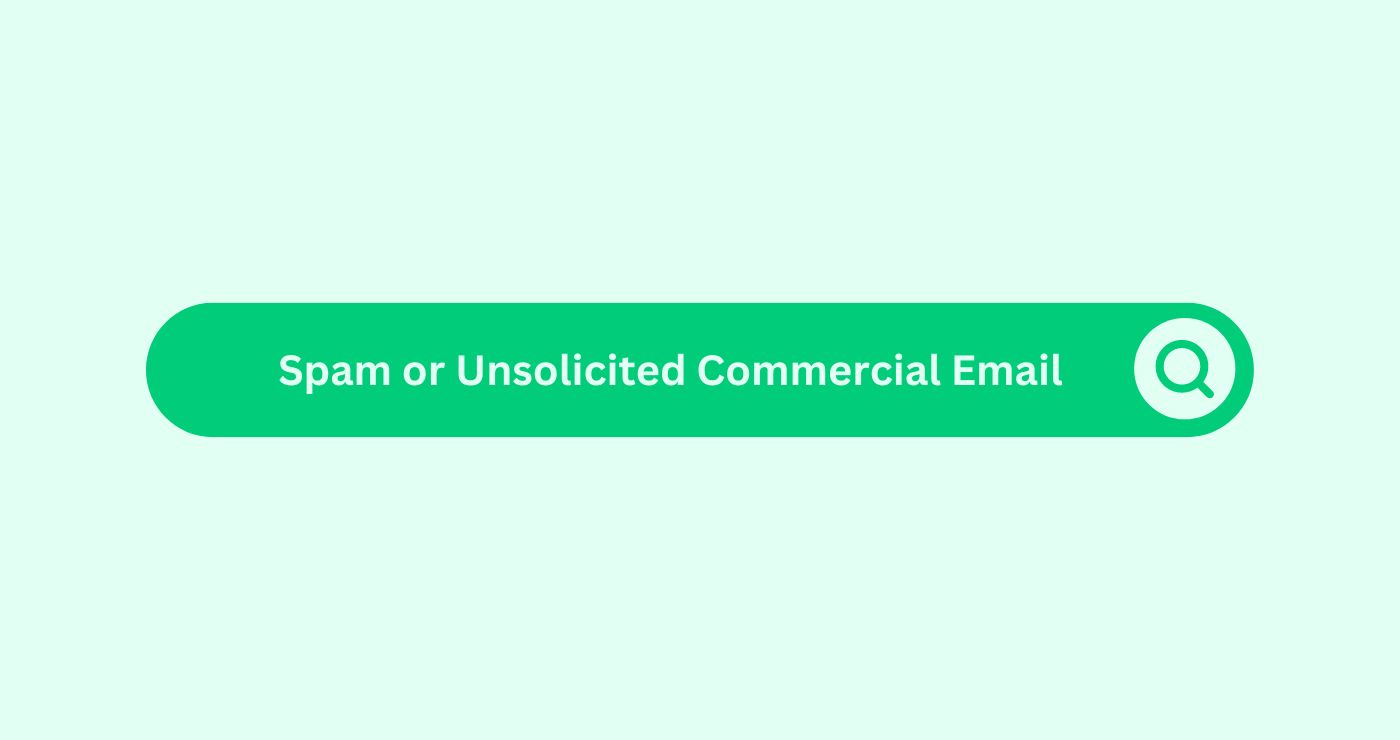Definition
In email marketingDefinition
E-mail marketing uses targeted messages t..., the term “spam” refers to unsolicited, bulk electronic messages sent for advertising or promotional purposes. These emails often lack user consent, mislead recipients about the sender’s identity, and promote irrelevant products or services. Spam emails can significantly damage a sender’s reputation and leadDefinition A Lead in the context of SEO refers to a potentia... to email deliverabilityDefinition Email deliverability refers to the ability of an ... issues.
How You Can Use
While unsolicited emails might seem like a quick way to reach a large audienceDefinition The term "Audience" refers to the group of indivi..., it’s a deceptive practice with severe consequences. Sending spam can leadDefinition A Lead in the context of SEO refers to a potentia... to:
- Increased spam complaints: Recipients who receive irrelevant emails are likely to mark them as spam, hurting your sender’s reputation.
- Email blocking: Internet service providers (ISPs) can block emails from senders with high spam complaint rates.
- Damaged brand image: Spam emails portray your brand in a negative light, eroding customer trust.
Key Takeaways
- Consent is Crucial: Always obtain explicit consent from recipients before adding them to your email listDefinition By forwarding the email, you ensure that your tea....
- RelevanceDefinition In SEO, relevance refers to the degree to which a... Matters: Tailor your email content to the recipient’s interests and avoid sending irrelevant promotions.
- Transparency is key: Clearly identify yourself and your company in the email header and avoid deceptive practices.
- Unsubscribe Options are Mandatory: Include a clear and functional unsubscribe option in every email you send.
- Respect User Privacy: Comply with anti-spam regulations like CAN-SPAMDefinition The CAN-SPAM Act, short for "Controlling the Assa... (US) and GDPR (EU).
FAQs
What is spam or unsolicited commercial email in email marketing?
Spam or unsolicited commercial email, is any email sent to recipients without their explicit consent, typically for promotional purposes.
Why is sending spam harmful to my email marketing efforts?
Sending spam can damage your sender's reputation, reduce email deliverabilityDefinition Email deliverability refers to the ability of an ..., leadDefinition A Lead in the context of SEO refers to a potentia... to legal penalties, and harm your brand's image.
How can I avoid my emails being marked as spam?
Obtain explicit consent from recipients, provide valuable content, adhere to legal requirements, and use email authentication protocolsDefinition Authentication protocols are systematic processes....
What are the legal consequences of sending spam?
Sending spam can result in fines and penalties under laws like the CAN-SPAMDefinition The CAN-SPAM Act, short for "Controlling the Assa... Act and GDPR, depending on your jurisdiction.
How does sender reputation affect email deliverability?
A good sender reputationDefinition Sender Reputation in Email Marketing is a score t... improves email deliverabilityDefinition Email deliverability refers to the ability of an ..., while a poor reputation increases the likelihood of emails being marked as spam.
What are SPF, DKIM, and DMARC?
These are email authentication protocolsDefinition Authentication protocols are systematic processes... that help verify the legitimacy of your emails and reduce the chances of them being flagged as spam.
How can I build a permission-based email list?
Collect email addresses through voluntary sign-ups on your website, offering incentives like discounts, newsletters, or exclusive content.
What should I do if my emails are being marked as spam?
Review your email practices, improve content quality, authenticate your emails, and ensure compliance with email marketingDefinition
E-mail marketing uses targeted messages t... laws.
What is the importance of clear unsubscribe options?
Clear unsubscribe options ensure compliance with legal requirements and show respect for recipients' preferences, reducing spam complaints.
Can buying email lists lead to spam issues?
Yes, purchased email lists often contain recipients who have not consented to receive your emails, increasing the risk of being marked as spam.




